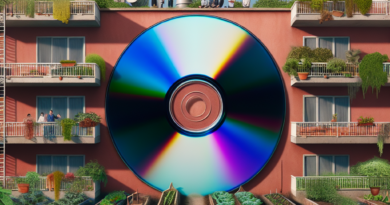When Can You Challenge a Tari Payment Notice?
Challenging the Property Tax Payment Notice: When can it be Challenged?
Property owners often wonder when they can challenge the property tax payment notice, especially when it comes to the Tari (waste tax).
The Tari is a tax on waste that all property owners who produce waste are required to pay.
But what happens if someone owns multiple properties and doesn’t use them all simultaneously?
When it comes to the second home, the Tari should be proportional to the waste production.
However, many municipalities do not always implement this correctly, and non-residents are often penalized in Tari payments.
Despite producing less waste, they are asked to pay the same amount as residents who undoubtedly make more use of waste collection services.
The Ruling from the Regional Tax Commission in Tuscany
In a significant ruling (26/2022), the judges of the Regional Tax Commission in Tuscany, second section, intervened on the issue of the Tari for second homes.
They stated that a municipal regulation that does not provide for a proportional calculation of the tax is illegitimate.
This is because it tends to disadvantage those who do not reside in the property all year round by equating them with regular residents.
The essence of the ruling is to ensure that the tax covers the costs of the service provided by the municipal administration without excessively burdening those who produce less waste due to shorter stays.
This situation is particularly relevant for non-residents who only use their properties for limited periods, such as holiday homes.
Challenging the Property Tax Payment Notice
If a municipal regulation does not adhere to the principle of proportionality, as mandated by the Constitution, the taxpayer can challenge the payment notice by directly contacting the municipal tax office.
They can request a recalculation of the Tari amount.
If the municipality rejects or does not respond to the request, the challenge can be escalated to the provincial tax commission within the established deadlines.
Regulations concerning Second Homes
A specific set of regulations apply to second homes regarding tax exemptions and benefits.
Uninhabited properties are entitled to waste tax exemptions if they are considered uninhabitable or located in unserviceable areas, thus not generating waste.
However, if a property is connected to utilities but remains unused for extended periods, exemptions do not apply, and the Tari remains due.
Some municipalities offer minor rate reductions for properties used seasonally or sporadically, but these reductions do not consider the actual number of occupants or average stay duration.
The Supreme Court’s Stance
The longstanding issue of the Tari for second homes has also caught the attention of the Supreme Court.
In sentence n.8383/2013, the Court deemed the calculation of the Tari for second homes based on the number of occupants derived from the property’s size to be legitimate.
This presumption applies in cases where the actual number of property users is unknown.
However, taxpayers have the opportunity to present evidence disproving this presumption if needed.




